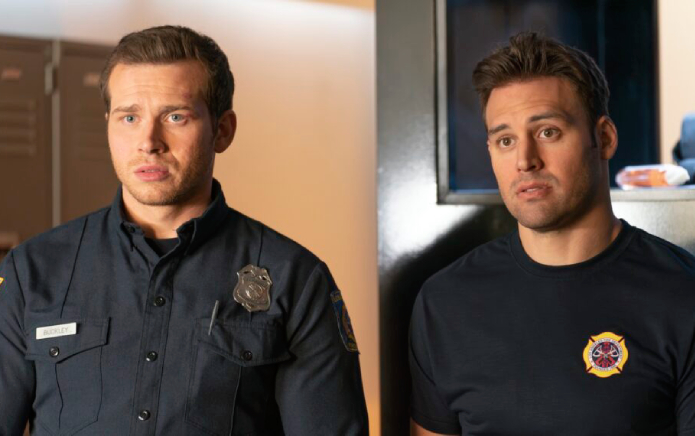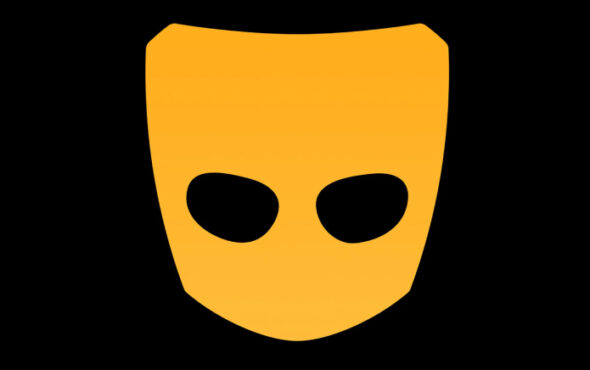
My coming out experience will forever be etched into my memory. It was 2012 and I was 16, sitting at a friend’s house watching The Hills. Formspring (a platform where you could publicly answer anonymous questions asked privately) was all the rage, and my inbox was constantly full of people asking if I was gay. Instead of deleting them like I usually did, my fingers shook as I answered one with a simple ‘Yes :)’ before I went back to distracting myself with an argument between Lauren Conrad and Heidi Montag.
I was finally ready for the world to know that I was gay. I’d told my close friends beforehand, but I was ready for the years of whispers, questions and teasing around my sexuality at school to end, which for the most part, it did. Although I came out to my mum shortly after (and eventually to my Muslim dad when I got into a serious relationship years later), for me, my ‘coming out’ happened through a screen.
Whether you say it out loud, via text, or even in your head, the term ‘coming out’ means something different to all of us. It can refer to the act of self-realisation and acceptance, a way of intimately sharing a part of your identity with your loved ones, or it could be broadcasting this information at school, work, or online – PSA-style – like me. But how did we get here? How has the meaning of ‘coming out’ evolved over time, what does it mean in the different corners of our community, and ultimately, do we still need to do it?
When did we start coming out?
Our community adopted ‘coming out’ as a phrase to describe first being presented to the gay world at drag balls in US cities like New York, Chicago and Baltimore in the 1930s. Predominantly used by African American communities in these early days, the term nods to an even earlier aristocratic tradition, whereby young female debutantes would ‘come out’ into high society during their own elaborate balls.
Abigail Saguy, a professor of sociology at UCLA and author of Come Out, Come Out, Whoever You Are believes that the term didn’t earn its current meaning until nearly 50 years later, when it became politicised by openly gay Californian politician and activist Harvey Milk. In a 1978 speech against a proposed ban on gay teachers working in local schools, Milk urged gay people to “come out, come out, wherever you are” as a political tactic. “His announcement was really imperative in encouraging others to disclose their sexuality to their family, friends and co-workers,” Saguy says. “It was a way to create more solidarity and support for the community.”
Dr Justin Bengry leads the MA in Queer History at Goldsmiths, University of London – the first programme of its kind in the world. He says that before the work of Harvey Milk, Marsha P. Johnson and the wider gay liberation movement, most LGBTQIA+ people either lived without declaring their relationships to others or lived double lives entirely to ensure a peaceful life. “Many lesbian women, for example, were married to men because they wanted families, sought companionship or relied on the economic stability that marriage offered,” he explains.
Someone who knows all too well about living a double life is Jeremy Pemberton. Ordained into the Church of England in his early 20s, Pemberton was married to a woman for 30 years and had five children before coming out as gay at 50. “I remember the day before I got married, I thought, ‘I can probably keep this up for about 25 years’, and that was about right,” he recalls. “I refused to accept that I was gay… I just kind of staggered on.” The pressures of hiding his true self, the “terrifying” anti-gay attitudes of his 1960s childhood, and the views of his religion eventually caused Pemberton to suffer a nervous breakdown. In between therapy sessions, he watched Brokeback Mountain, which caused an “epiphany moment” where he looked in the mirror and told himself, in floods of tears, that he was gay.
Pemberton told his wife (who he then discovered had begun a romantic relationship with a woman) and later his family, but one of his biggest worries was the “trouble” his sexuality would cause in the Church. Unable to deal with constant questioning and press “snooping around”, Pemberton moved away from his home in Cambridgeshire to live as his true self and in 2014 became the first priest in the Church of England to enter a same-sex marriage.
Despite his marriage leading the Church to revoke his permission to officiate and block him from working as an NHS chaplain, Pemberton has maintained a strong relationship with his family, worked in schools as a Stonewall volunteer and shared his story at Christian conferences. “I have a lot of people come to me afterwards to tell me that they’re a married vicar and in the closet,” he says. “There’s an awful lot of fear still around religion and being queer.”
However, for Pemberton, coming out strengthened his faith even further. “It was a very profound spiritual experience,” he says. “It felt like a total liberation immediately. Although it was difficult to manage, it was nothing like the fear I was living in before.”
"Many lesbian women were married to men because they wanted families, sought companionship or relied on the economic stability that marriage offered” – Dr Justin Bengry
Rewriting traditional coming out narratives
For the most part, Jeremy’s coming out experience was positive. But the same can’t be said for everyone. Being queer can make up a big part of who we are, but it’s not the only component of our identity. From religion to cultural traditions and race, these layers interact with our sexuality/gender identity and cause a myriad of intersectionalities underneath the LGBTQIA+ umbrella, which can complicate an individual’s feelings about coming out.
“Some people don’t love the thought of coming out because they feel like it’s privileging one aspect of their identity over the other,” Saguy says. “We talk about ‘coming out’, but you’re also coming out into a community.” While some of us may find the safety net of our community straight away, or at least watch it from afar before coming out, for others, not finding people with similar identities and experiences can feel alienating and prevent coming out entirely. Additionally, Saguy notes that the background of the term – and wider representation – has been historically exclusive, putting white, cis-gender men (the people for whom it can be easiest to come out) at the forefront. “This stereotypical image creates more needs to come out, to declare different sorts of identities, but also to define different communities.”
Born to a Caribbean family in Loughborough, 23-year-old Tre Thomas feels that sometimes his Blackness and queerness clash and that these intersecting identities provide more opportunity for discrimination. “On one side, you might experience homophobia in the Black community, and then on the other, you face racism within the queer community,” he says.
Before questioning from his mum led him to open up about being gay at 16, Thomas navigated his sexuality with the help of LGBTQIA+ friends online. These friends, he says, gave him the courage to come out to others outside of his immediate circle (when asked) when he began Sixth Form. “Telling people was a gradual thing. I felt like some of the people I was around during GCSEs weren’t very nice and were too immature to come out to,” he says.However, despite other queer pupils attending his Sixth Form, being both gay and one of few Black students left Thomas feeling alienated. “My white school friend came out and a community already existed for him, but it took me a long time to find other Black queer people,” he explains.
Social media, on the other hand, offered Thomas a place to meet, interact and confide in others just like him – a privilege that people from previous generations, like Pemberton, weren’t afforded. Of course, these digital spaces can be a double-edged sword: providing support from unexpected places in some ways, yet isolating particular individuals in others. But they also provided a new platform, and thereby a new way, to come out, where influencers, online celebrities and just about anyone could share a piece of themselves with the world. “As I grew up, I associated coming out with a YouTube video that someone like Troye Sivan would make,” Thomas says, pointing out how it was mostly white celebrities coming out in this way at the time. “I never really wanted that… I thought it would be too overwhelming to do some kind of grand announcement.”
@chezablondexo I am simply i am #trans#transgender#lgbtq#fyp ♬ original sound – ⊱✿⊰ciara⊱✿⊰
However, for content creator Rhys Thomas – who goes by the alias Cheza Blonde online – watching fellow trans women like Gigi Gorgeous share their stories online provided an “incredible tool” when navigating her own trans identity. Now providing inspiration for a new generation, the now 22-year-old first told her parents she felt she was “in the wrong body” in Year Six after an LGBTQIA+ support group gave a talk at her school. Thomas began secondary school still using he/him pronouns, but says that her official coming out occurred upon returning to school for the second term of Year 7. “I already had long hair and wore make-up before, but I came back wearing a skirt to school for the first time and asked to be referred to with she/her pronouns from that point,” she says. Despite facing bullying, Thomas has always received support from her loved ones (which she acknowledges isn’t a shared experience) and points out that ‘coming out’ isn’t a blanket process for everyone.
From Blonde’s perspective, the notion of ‘coming out’ as a trans woman isn’t comparable to the experience of a cisgender member of the community, or even the narrative that coming out is a bold choice in the way that Harvey Milk once imagined. “It’s totally different for trans people. This isn’t about who I’m attracted to; it’s about me as a person, how I can face my own gender dysphoria and feel right in my own body,” she explains. For many trans people, the moment they feel ready to explore ways to affirm their gender, they’re essentially forced to come out. If they’re presenting in a different way physically, they’re likely to face questioning immediately, feeling like they have to explain their gender journey to the people around them. Trans people aren’t afforded the same privilege as say, a bisexual man, to conceal this part of their identity and decide when they can show it. “It’s feeling like I’ll never truly be a part of society because I’m growing up in a world full of gender norms. It’s not even necessarily the coming out part, but it’s about what happens after,” Blonde says, although she highlights her privilege in being able to access gender-affirming care as she started puberty. “It wasn’t easy for me, but it was definitely easier than how it is for other trans people.”
Although we tend to think of “coming out” as consisting of one or two memorable instances, Saguy and Bengry highlight that for LGBTQIA+ people, disclosing our identities is a constant, ongoing process. “We discover that coming out is the start of a process full of questions, risk evaluations, and sometimes snap decisions,” Bengry says. “With each person, it depends on context,” Saguy adds. Some of us may feel confident being our true selves at all times, no matter who we find ourselves around – friends of friends, neighbours, in job interviews, or with extended family members.
On the other hand, others may choose to skirt over their identity in these scenarios, feeling uncomfortable in correcting wrong pronoun use or assumptions made about their sexuality/gender identity. “You ask yourself, is it always worth it? There’s something in it which is continually negotiated,” Saguy says. On top of this, not everyone even has the privilege to avoid these conversations and ‘pass’ when it’s more convenient. Even though coming out was a political strategy in the US that turned mainstream, the entire community doesn’t owe it to the world to be out all the time.
“My white school friend came out and a community already existed for him, but it took me a long time to find other Black queer people" - Tre Thomas
The future of coming out
As the above experiences confirm, the meaning behind ‘coming out’ has evolved since Harvey Milk’s speech in the 70s and the drag balls of the 1930s. But with the phrase being associated with our community for nearly a century, it begs the question: should we still feel like we need to ‘come out’ and disclose this information in 2023?
Ultimately, the act of coming out is a crucial part of so many of our identities. As our community grows and many come out at a younger age, Bengry recognises that the process is becoming increasingly personal: the way we share our identities – and the language we use to do it – is changing. For instance, in August, queer icon Janelle Monáe said in an interview that they resonate with the idea of “letting people in” to who they are, rather than “coming out” to others. “This is a more intimate way of talking about your identity, and I see a lot of people try to distinguish themselves in this way,” Saguy says
Regarding the traditional notion of coming out, Blonde and Thomas hope it becomes less daunting for future generations, which could be helped by society relaxing gender norms and starting open conversations about sexual and gender identity at a younger age. But while some may prefer the low-key approach to coming out, it’s important that big public declarations of sexuality and gender simultaneously continue.
Why? Because the act of coming out is inherently political – and doing it loudly provides our community with a much-needed form of visibility. Public declarations challenge the forces that try to silence and exclude us, provide inspiration and comfort to those looking for it, and brazenly show that we will continue to exist (and always have done) no matter what anyone else tries to say or do. These announcements are still needed in a world where LGBTQIA+ people still navigate a landscape which is resistant – and often downright intolerant- to our existence. After all, sexual acts between people of the same gender remains criminalised in over 60 countries and discrimination and hate crimes – especially against trans individuals – continue to rise in the UK. “We’re so much stronger in numbers, and I think it’s so important to let the world know that we’re not going anywhere,” Blonde says.
With such a large, beautiful community, a one-size approach to coming out isn’t going to suit everyone. If we can appreciate the variety of identities around us, why should we expect everyone to come out in a way that appeases everyone else, if at all? “Surely the celebration of diversity is recognising our difference and honouring the various ways of living one’s identity,” Bengry says, “Whether that includes public declaration, community affiliation, loud and proud activism, or none of the above.”
This feature is taken from the October 2023 issue of GAY TIMES. Head to Apple News + for more exclusive features and interviews from the issue.



